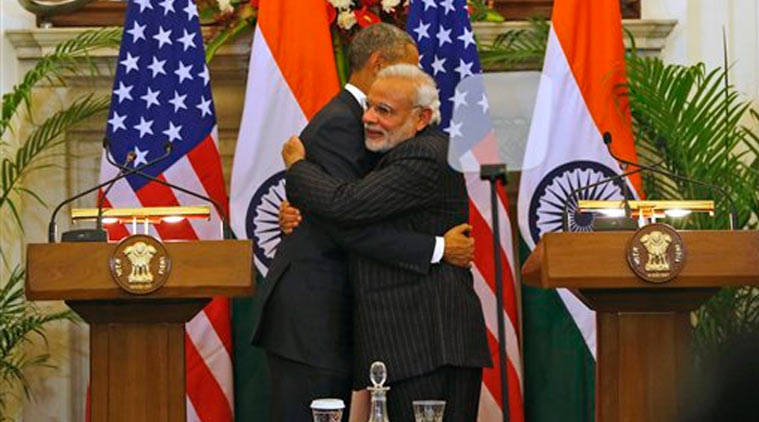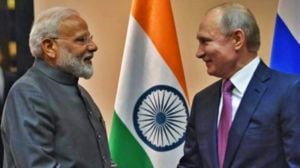Stay updated with the latest - Click here to follow us on Instagram
How the neighbourhood media saw Obama’s Republic Day visit to India
US President Barack Obama is on a three-day state visit to India.
 US President Barack Obama and Prime Minister Narendra Modi at a post-talks press conference
US President Barack Obama and Prime Minister Narendra Modi at a post-talks press conference
The high-profile visit of US President Barack Obama to India has already set off murmurs in the south-Asian neighbourhood, particularly in the media about the outcome of the bilateral talks and the long-term projection of the Indo-US ties.
The increasing bonhomie of the United States and India is likely to upset China, which seemingly has scores to settle with both countries. While China has had a border standoff with India over Arunachal Pradesh, the communist country has always seen the US as a powerful adversary.
This is how the official Chinese media Xinhua agency wrote about Obama’s visit to New Delhi.
“The shortened three-day visit is more symbolic than pragmatic, given the long-standing division between the two giants, which may be as huge as the distance between them,” read an editorial.
And this is how Swaran Singh chose to put it in the China Daily.
“Apart from China’s unprecedented rise, its increasing assertiveness in regional and global matters is often cited as a possible trigger for India’s policy drift in favor of Western countries. Modi’s repeated mention of “expansionism” and maritime terrorism, underlining the need to ensure freedom of navigation and over-flights suits the US, which has introduced the “pivot to Asia” and proposed the Trans-Pacific Partnership to counter China’s rise,” he wrote.
Well as for Pakistan, even though no questions emerged about it in the post-bilateral talks press conference on Sunday, it is no secret that India is bound to pursue talks with the US about increasing terror threats emanating from Pakistan.
An editorial in the Dawn newspaper read, “To be sure, there is an element of playing to the gallery involved in all such visits. Indian officialdom and its relatively nationalist media will likely try and elicit further comments on Pakistan from Mr Obama and other American officials that can be used by India to portray Pakistan in an even more negative manner.
If they are to fail in that objective, perhaps some Indian official himself will say something provocative in the next three days to grab the headlines.
Here in Pakistan, that will present a dilemma for the government and foreign policy establishment — say nothing in response and risk being labelled as weak or say something through the Foreign Office and risk getting into a fresh war of words with India.”
Wajahat S Khan wrote in The News about the breakthrough in the civil nuclear liability bill between India and the United States. He quoted former US president George W. Bush to explain differences in the US’s handling of India and Pakistan.
“Pakistan has itself been trying to cash a similar deal with the US, but the latter has remained hesitant. America’s decision not to grant the deal was framed famously by former President George W Bush who, during his visit to Islamabad in 2006, said, “I explained [to General Musharraf] that Pakistan and India are different countries with different needs and different histories.”
Bush further went on to say, “So as we proceed forward, our strategy will take in effect those well-known differences.” Over the years, despite their Strategic Dialogue, it’s been clear that such a deal for Pakistan remains a distant dream as long as the US continues to take into account the “well known differences”.
Khan goes on to add that the United States’ indifference to Pakistan has only pivoted the latter to move more closely towards China.







